Slideshow: Ready for Princeton, the Class of 2026 Moves In
Princeton’s Class of 2026 got off to a roaring start this week as they moved into their new homes on campus.
Lives Lived & Lost in 2025, Saying ’yes’ to more housing; AI startup stars

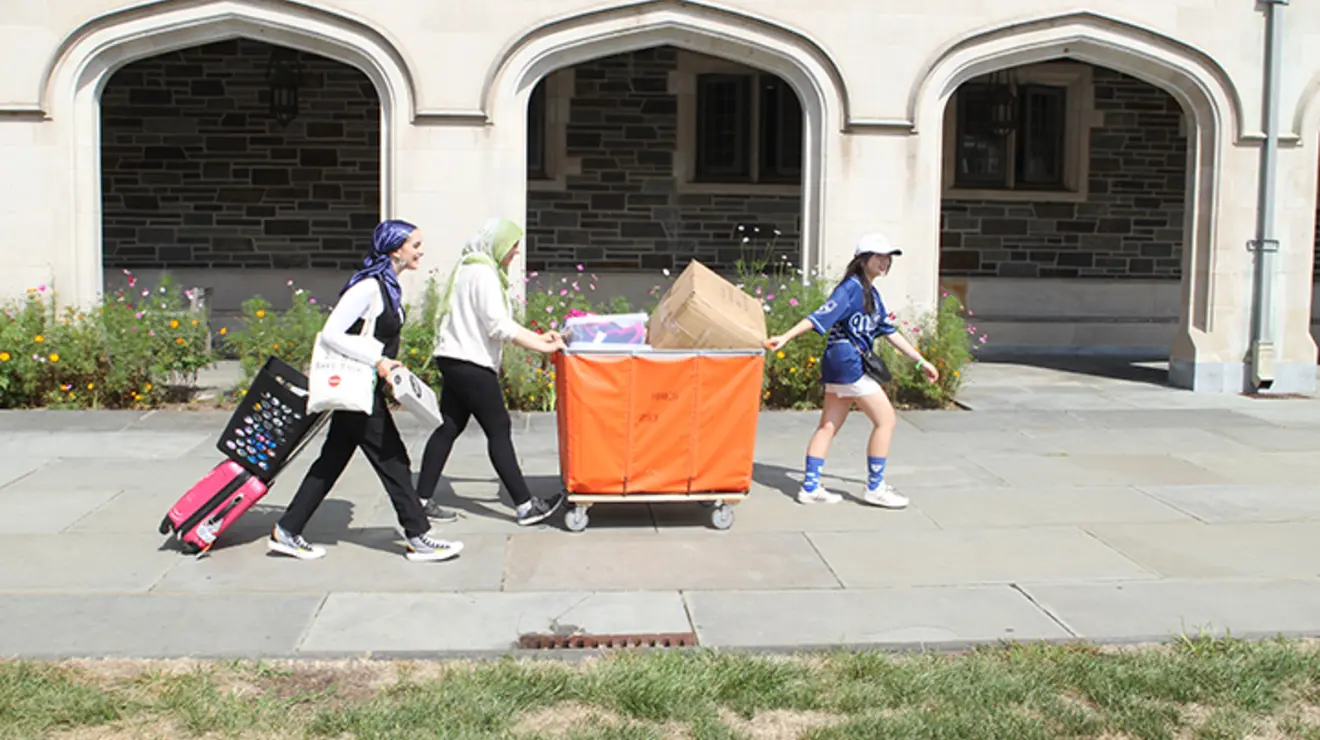
Grace Liu ’23, an RCA, helps Mariam Elawady ’26 of Chino Hills, California, move in. With her is her cousin, Hend Salah.
Beverly Schaefer
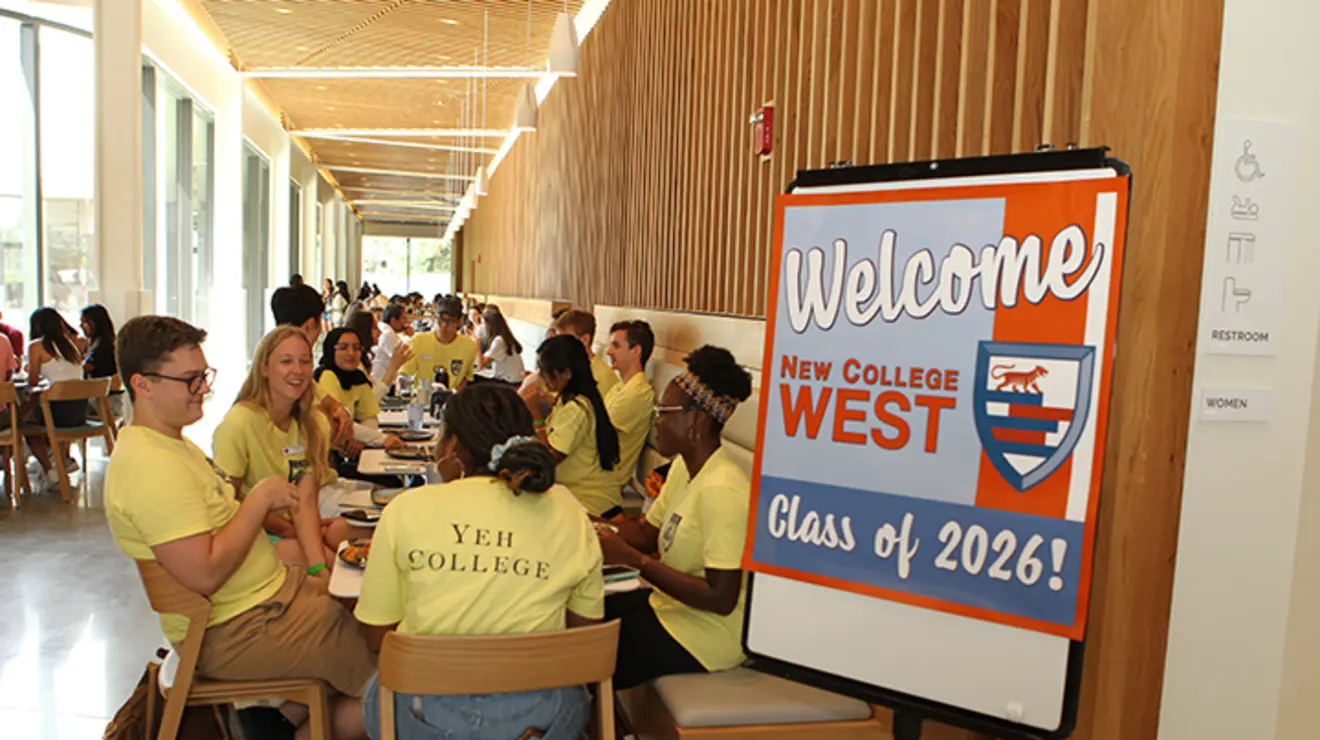
Students gather at New College West, including Alice McGuinness ’24 of Milwaukee, Wisconsin; Cole Meyer ’24 of Hutchinson, Minnesota; Mikala Parnell ’23 of Wilmington, North Carolina; and Danielle Samake ’24 of Maplewood, New Jersey.
Beverly Schaefer
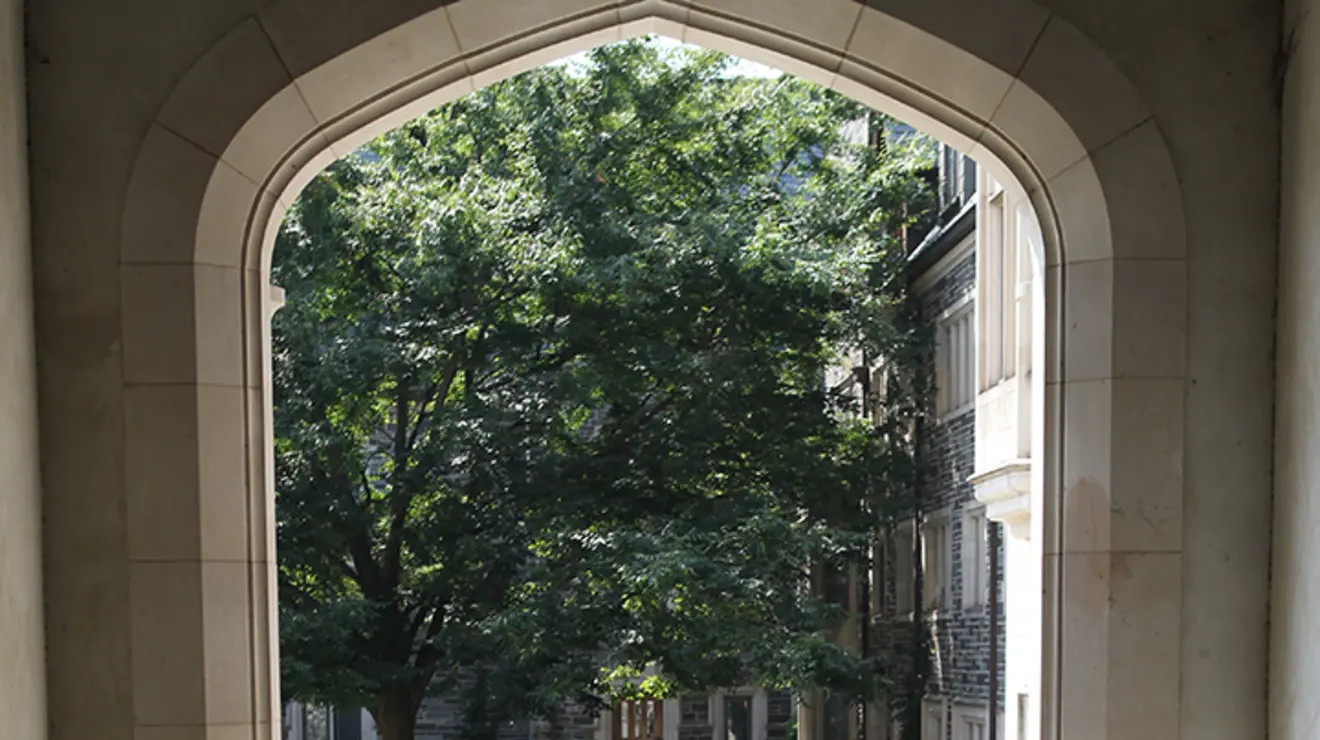
Charles Yu ’26 of Livingston, New Jersey, moves into Whitman College.
Beverly Schaefer
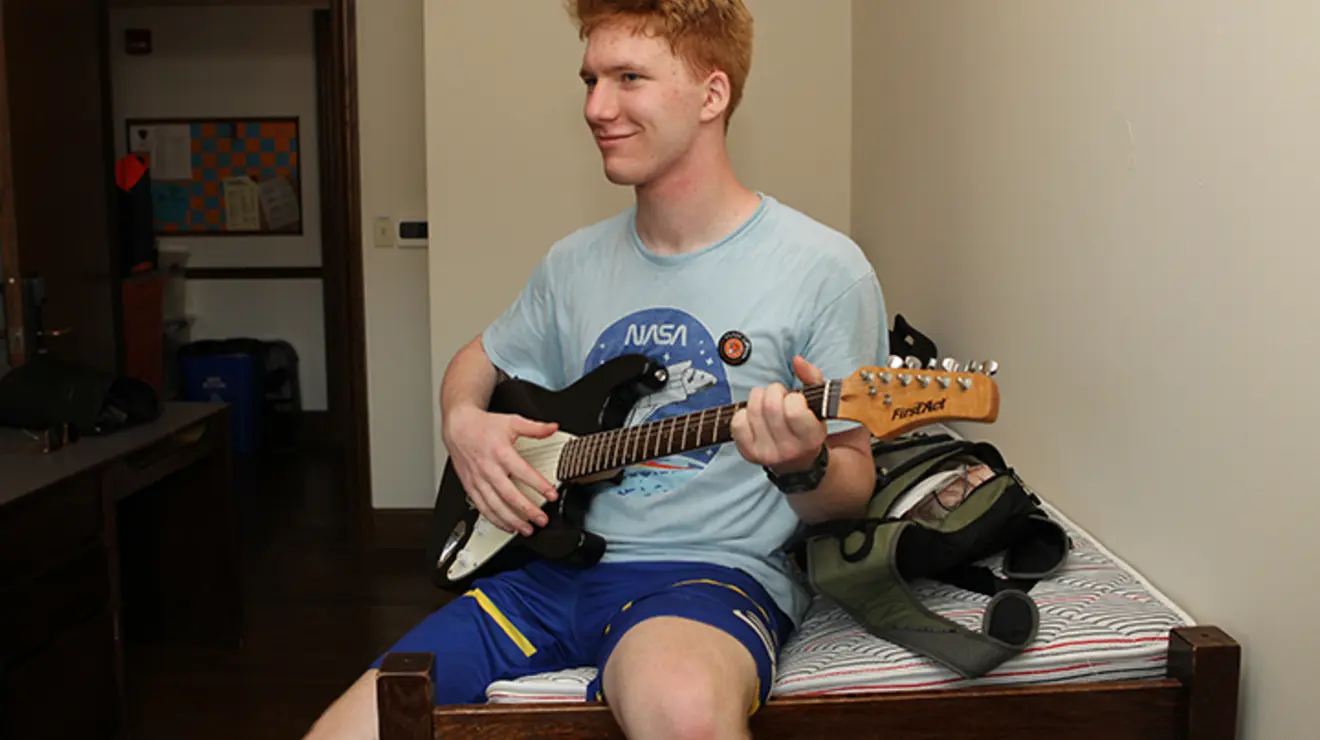
Greyson Sapio ’26 of Mays Landing, New Jersey, strums a guitar.
Beverly Schaefer
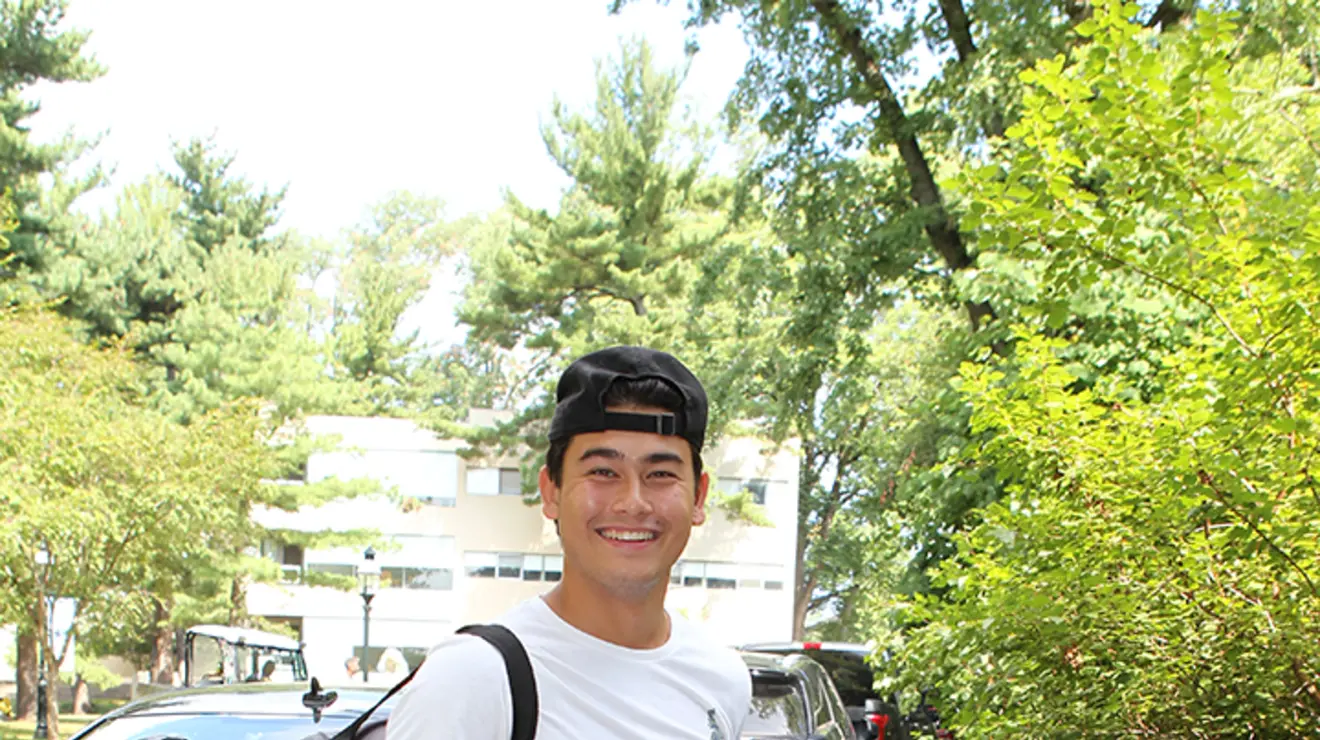
Jayden Sison ’26 of Paoli, Pennsylvania
Beverly Schaefer
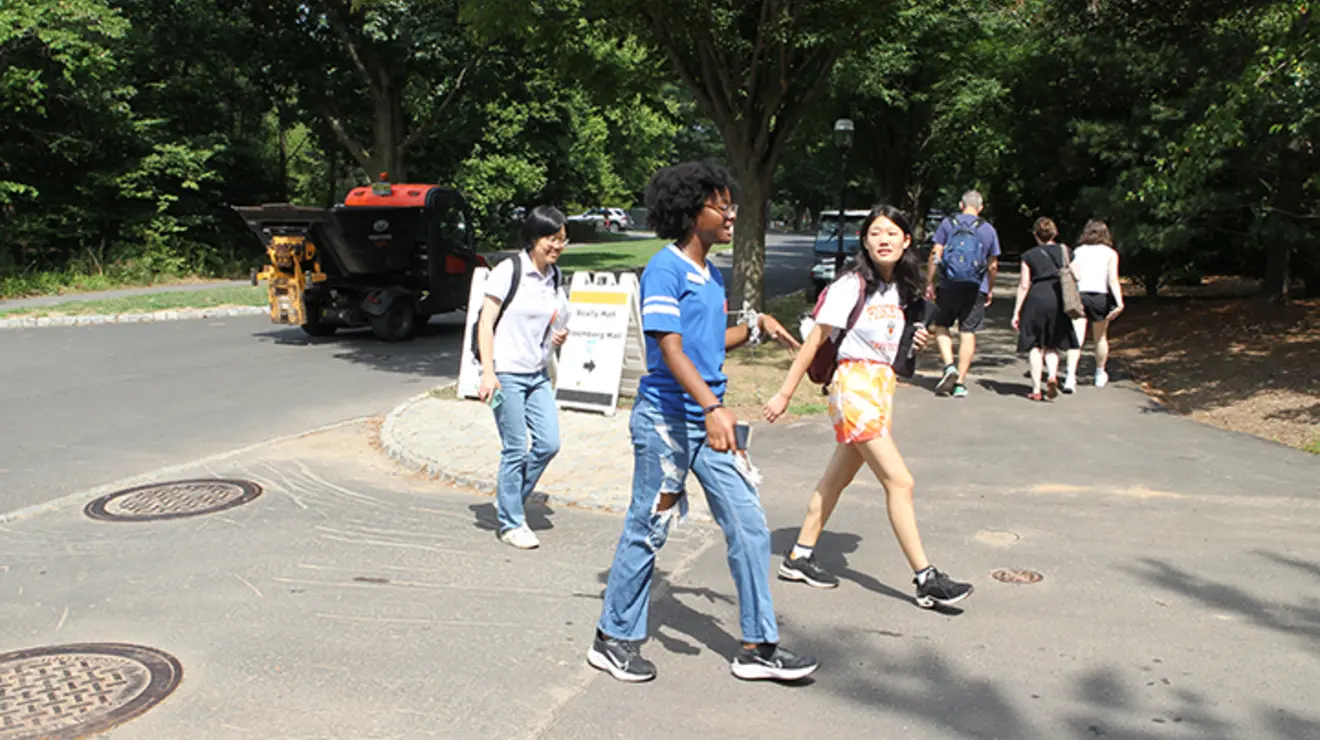
Sydney Johnson ’24, an RCA, walks with Jingjing Wang ’26 of China and her mother, Jinping Zhang.
Beverly Schaefer
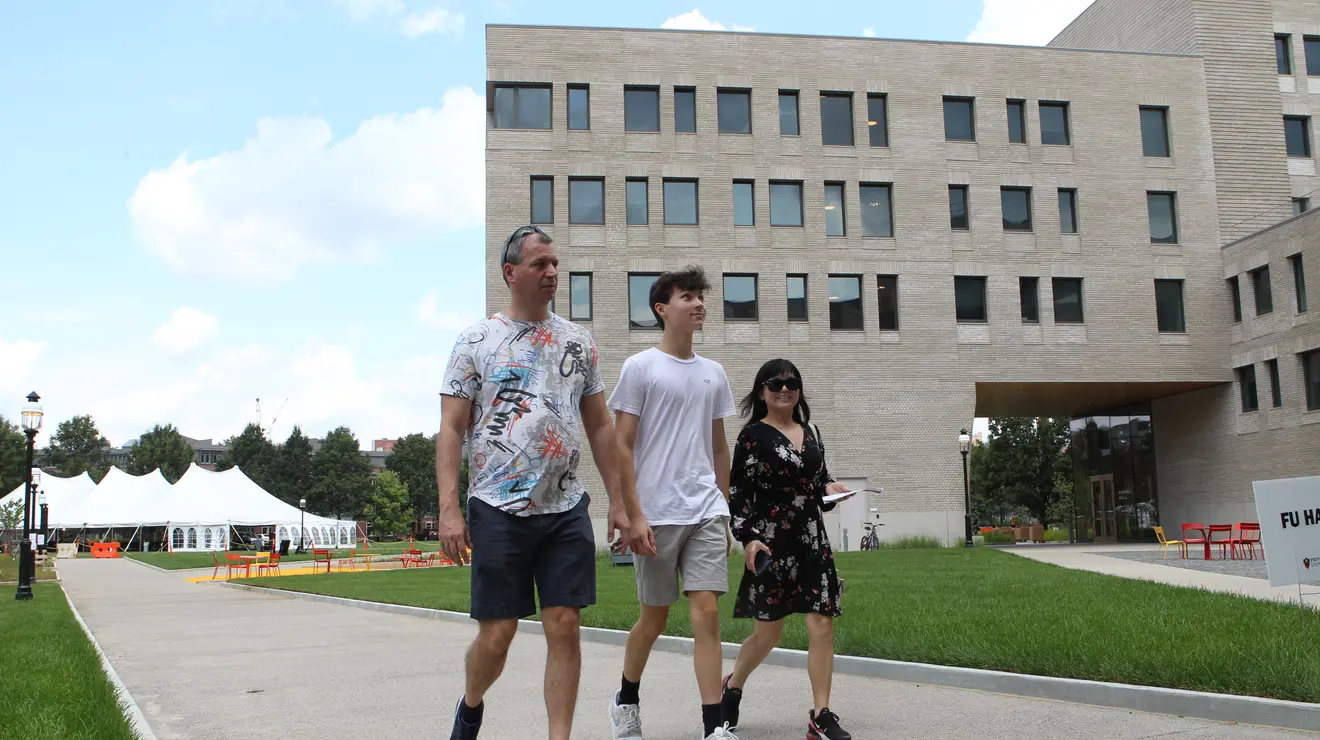
Jimmy Fraley ’26 of Cincinnati, Ohio, walks at Yeh College with his father, Jim Fraley, and his mother, Sherry Liao.
Beverly Schaefer
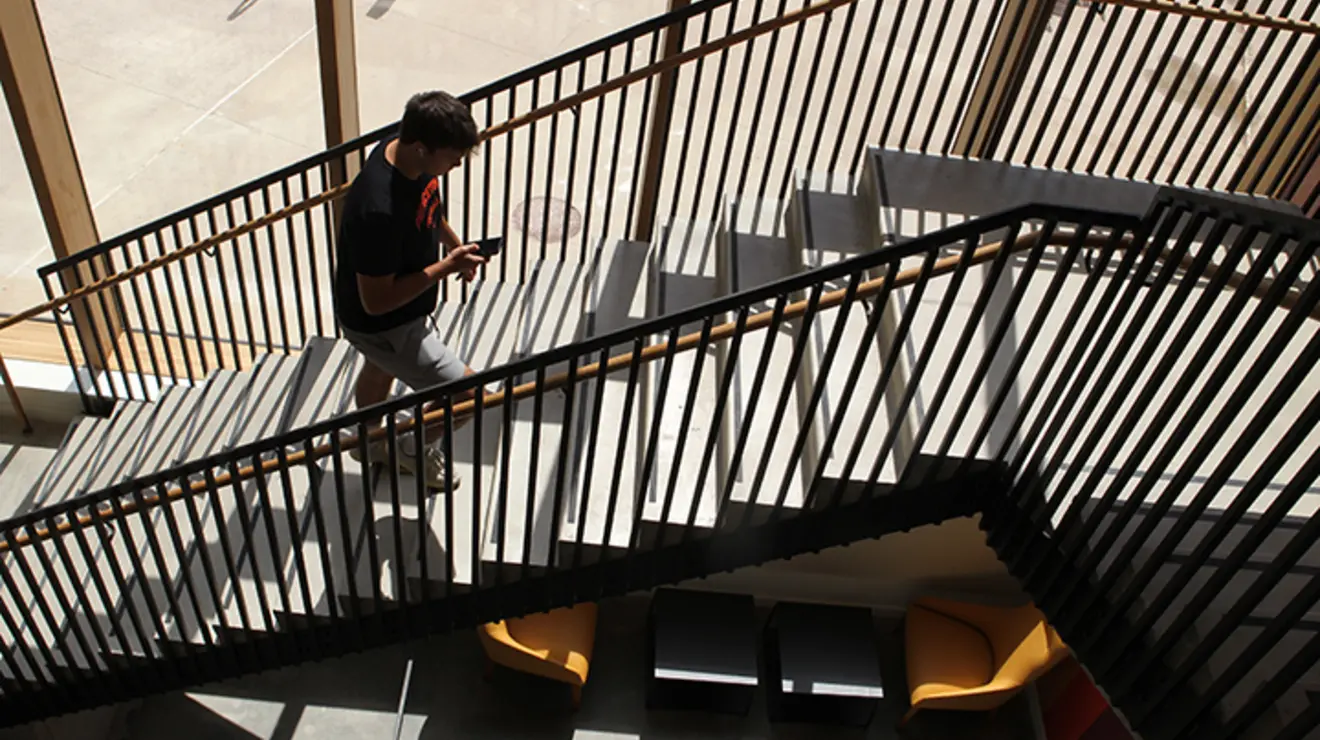
David Heath ’25 of Sparta, New Jersey, a player on the football team, walks up the stairs in Yeh College.
Beverly Schaefer
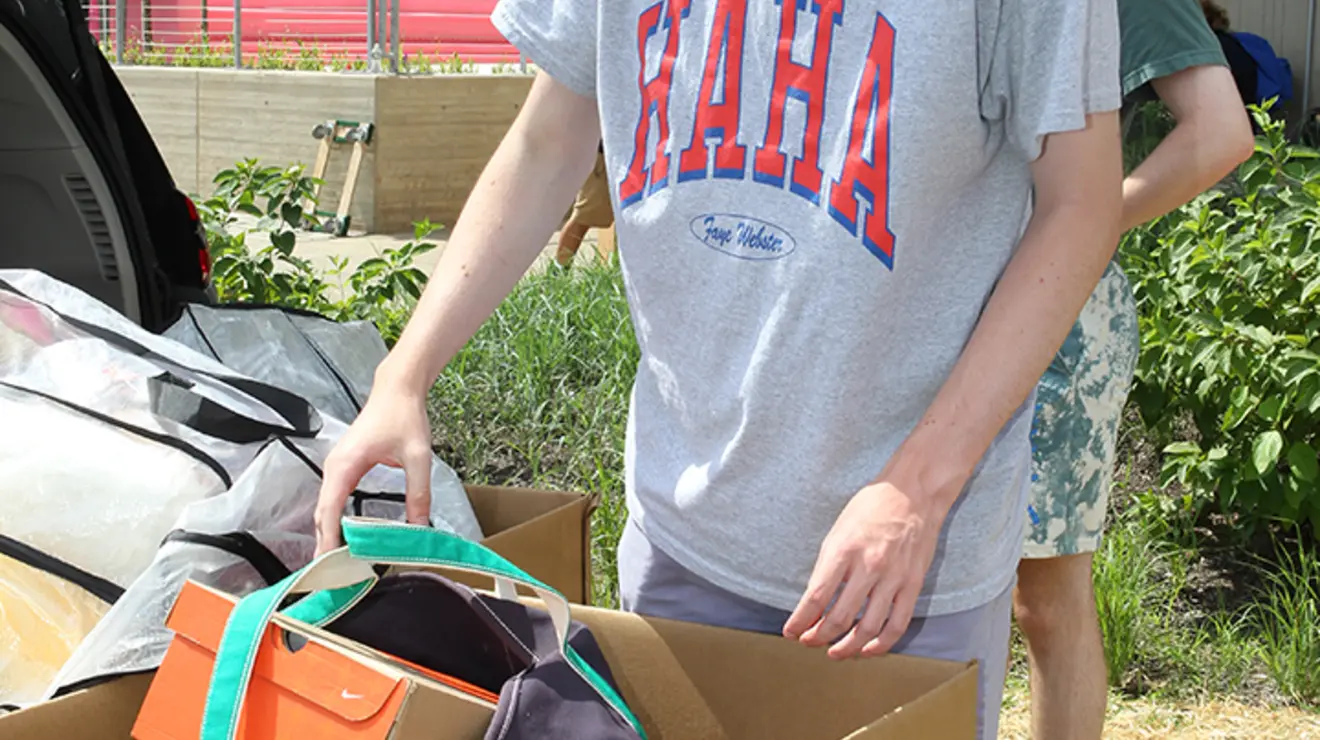
Harry Gorman ’26, of Exeter, New Hampshire
Beverly Schaefer
Published July 6, 2022
Princeton’s Class of 2026 got off to a roaring start this week as they moved into their new homes on campus.
Revisit the march down Elm Drive in a gallery of colorful photos by Katherine Elgin...
Museum of flawed products — from the Chevy Corvair to coffee that’s too hot —...
Revisit the P-rade in a gallery of photos by Beverly Schaefer, Frank Wojciechowski, Elizabeth Martin...
